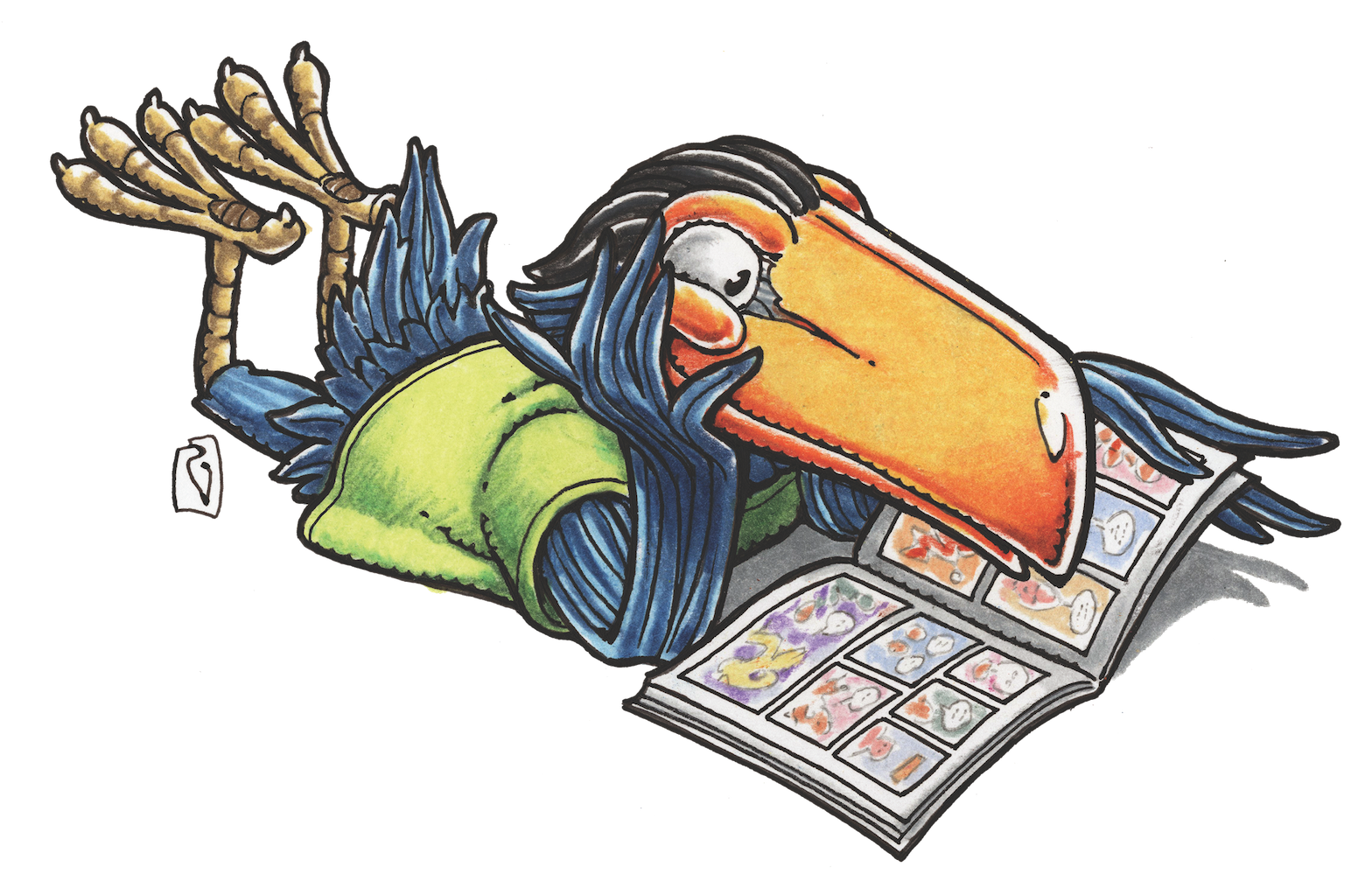MARC BERNARDIN’S DEVOURER OF WORDS
Devourer of Words 032: Query as Folk


One of the great parts of living when we live is, when one is searching for a topic to write about for a column, he can just turn to the Internet for help. Which is exactly what I did. (Ideas are ephemeral creatures who, occasionally, don’t show up when you need them to.)
So, when I broadcast to the Twitterverse that I was looking for questions to answer, I got a bunch. And these three were the most interesting:
From @Nerdimus
As a writer, is there a perfect ratio of producing content and consuming others’ content on a given day?
Not to rely on a cliché, but your mileage many vary. For me, it depends on the kind of thing I’m working on at the time. If it’s a research-heavy project, like the one I’m currently embroiled in, I will try and absorb as much as possible as I can on the subject. Naturally, most of that will be stuff created by other people. But the plurality of voices is necessary.
If it’s fiction set in a familiar arena—for example, espionage—I’ll watch/read a bunch to calibrate my idea towards subverting the audience’s expectations. What feels like a spy story? What are the signifiers that will automatically put the reader in the mindset I want them to be in? What are the clichés I can play with? And then, once the actual pen-to-paper happens, I won’t inhale any more on the subject.
I don’t read nearly as much as I should. A failing of mine, I know. In order to be a writer you need to be a reader. Then again, if you’re a real writer, nothing can stop you … not even your failings.
From @NAMBwriter
What are some examples where your writing had the opposite intended effect on the audience, positive or negative?
Putting aside the “I intended for this to be received positively and critics hated it” instances, the thing that was most misunderstood was Genius—which was about a young urban revolutionary and her war against the LAPD. One of the most amazing responses we got was, “If I wanted to be in the real world, I’d watch the news.” Which was really the nicest thing that “hater” could’ve said about a book that was very much about the conditions that brought America to a place where something like Ferguson could happen.
Genius was a divisive book. And everyone who aspires to create art should hope for work that forces people to take sides, to examine the way they feel about previously held beliefs.
But some people saw Genius as a polemic screed. Occasionally a call to violence against police officers. Which wasn’t our intent. It was to make people look at the reasons WHY someone would take arms against a sea of troubles and, by opposing, end them.
From @egattignolo
Will Eisner and Jaime Hernandez are masters. Using their work as examples, does form shape content, or vice versa?
I might be wrong, but I can’t imagine the storyteller who thought to his or herself, “I really want to tell a story on a six-panel grid … now, what’s the best story?” I think, especially for cartoonists like Eisner and Hernandez, it’s always a swirling well of inspiration, and it likely begins to coalesce simultaneously.
Granted, I’m a writer, and for me, character and story always come first. It even trumps medium. “What is the story I want to tell?” is the first question. Then comes, “what’s the best medium for it?”
As far as form on the comics page goes, for me, it is all about serving the story. What will allow the most effective communication of your idea? If that means you choose to impose a 16-panel grid on your entire story, as Frank Miller did in The Dark Knight Returns—which allows him to give the story a rigidity of form as well as the capacity to control time with a deft precision—go for it.
But form should follow function. And the function of a comic book, of any storytelling medium, is to tell the story. And whatever lets you do that the best is what you should do.
Marc Bernardin’s Devourer of Words appears the third Tuesday of every month her on Toucan!